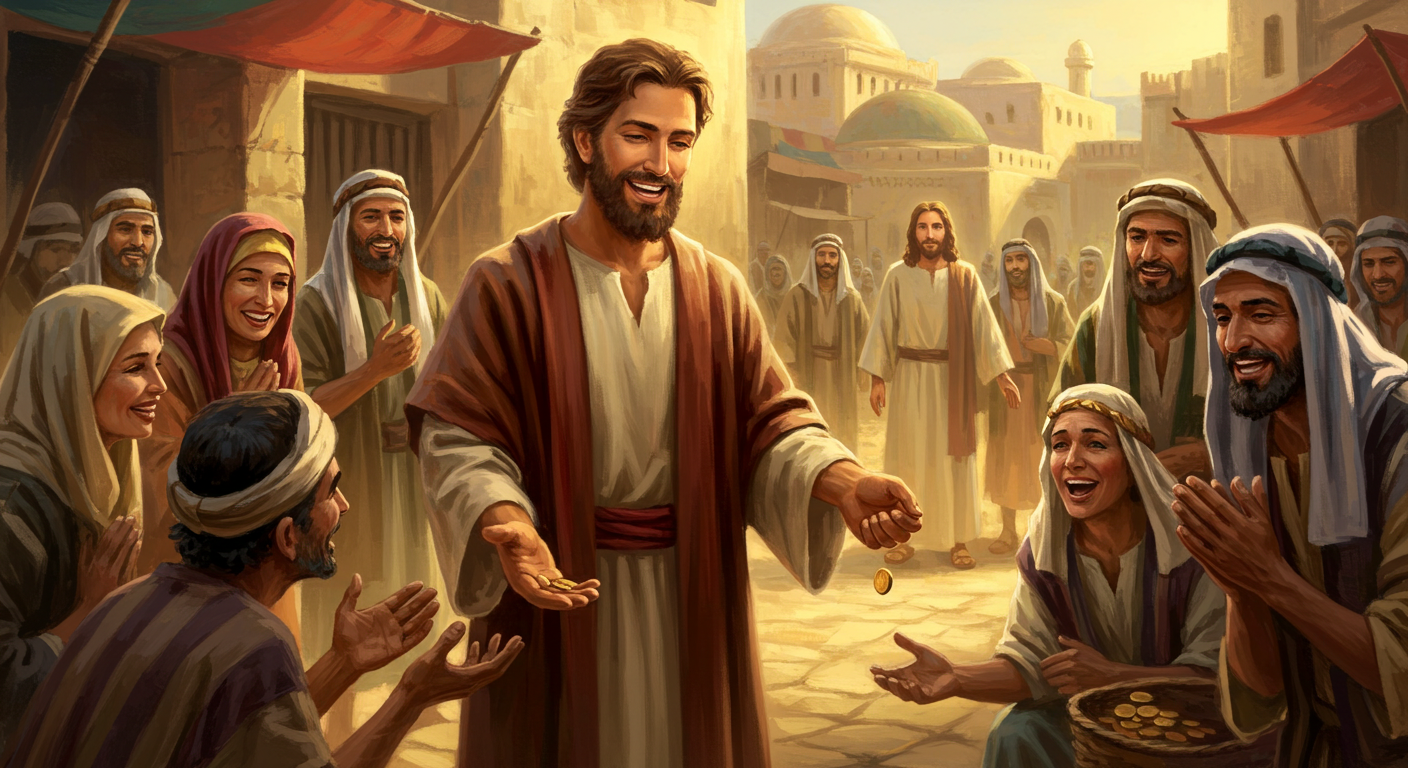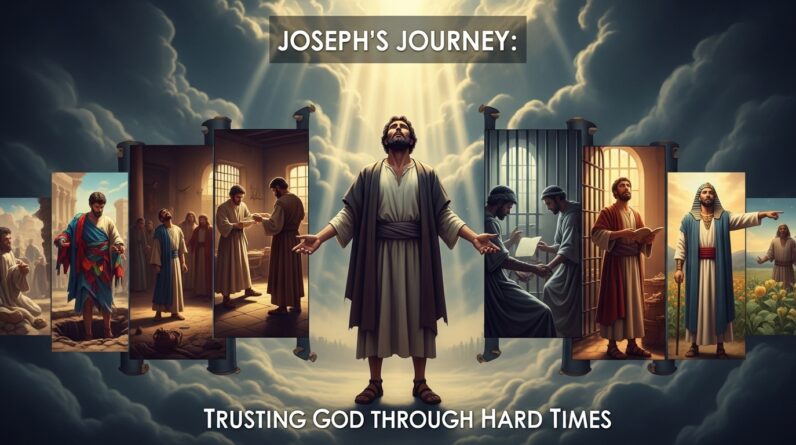Zacchaeus: From Greedy Tax Collector to Generous Follower
Hello dear reader! You’re probably here to dive into a story that sounds strangely familiar yet utterly transformative. You might be wondering about this guy Zacchaeus and why his name resonates throughout centuries as an emblem of change. His story is quite an engaging saga of personal transformation, and who doesn’t find a good redemption tale irresistibly captivating? Picture a short stature, a desire to see over people’s heads, and a bustling crowd in Jericho – all making the perfect backdrop to Zacchaeus’ transformation. Right, let’s get into it.
Who was Zacchaeus?
Zacchaeus: the man whose actions were as much the talk of the town as a viral tweet. He existed during a time when being a tax collector was synonymous with being unpopular. Imagine having people’s disdain leveled at you like arrows from a fiercely pulled bow. Zacchaeus was the chief tax collector in Jericho, a booming city that traded on wealth and commerce. This wasn’t just a minor role; it was one where you could easily slide into the skin of villainy. According to Luke 19:2, he was wealthy. His profession, however, turned into a gauntlet of greed. You know, the type where you’re compelled to over-collect to line your own pockets – greed dressed in Roman garb.
The Nature of Zacchaeus’ Greed
Let’s take a closer look at what made Zacchaeus infamous. The Roman tax system was gleefully exploitative. It gave tax collectors room to gouge more than the required tax with little accountability. Yeah, it was capitalism with all its sharp edges. Zacchaeus collected excess taxes to build his wealth. You could say he was relentless, the way a certain greedy relative seems to find their way to your dinner table every holiday without fail.
But beneath this greed was also unfulfillment. Some greed isn’t hunger for wealth; sometimes it’s a hunger for something more substantial – acceptance, worth, contentment. In Zacchaeus’ transformation, wealth didn’t turn out to be the panacea he hoped it would be.
The Unexpected Encounter
In the narrative scene set in Luke 19:3-4, Zacchaeus’ curiosity led him to Jesus, who was passing through Jericho. Crowds are a nuisance if you’re not tall, and Zacchaeus, short as he was, had to get creative. So he climbed a sycamore-fig tree. Talk about determination!
His perch on that tree was more than a good vantage point. It was a symbol of someone ready for change. Odd as it might be, his position, high in the tree, marked the start of his own Zacchaeus transformation. There’s something particularly relatable about wanting to see your idols in person, isn’t there?
The Magnetic Presence of Jesus
Jesus, unlike the crowd, wasn’t dismissive. He knew Zacchaeus was waiting. Meeting his eyes and saying, “Zacchaeus, come down immediately. I must stay at your house today” (Luke 19:5) shattered every norm. It was a kind of chemistry, the invisible thread pulling Jesus into Zacchaeus’ world—except this thread was woven with compassion, not magic.
Imagine the scandal! The tongues were wagging up and down in disbelief. Here was a revered teacher, a person of divine connection, choosing the company of a societal leper. But such was the draw of Jesus’ magnetic presence, sparking the fires of public chatter and private introspection.
The Transformation Begins
Nothing could dim the magnitude of the moment; Zacchaeus, scrambling down from the tree, felt like a curtain call. Once back on solid ground, his transformation began, paved by joy and disbelief at being seen and chosen by someone as monumental as Jesus.
A Sincere Repentance
This Zacchaeus transformation demanded more than emotive changes; it demanded action. Before gathering crowds, Zacchaeus proclaimed, “Look, Lord! Here and now I give half of my possessions to the poor, and if I have cheated anybody out of anything, I will pay back four times the amount” (Luke 19:8). Wow, imagine the scene – dropping financial plans like bombshells to overhaul his legacy.
What strikes you most is the sincerity behind his repentance. It wasn’t just words; his intentions manifested in tangible solutions. It’s the equivalent of quitting your stable job to pursue purpose. God, how often do we find ourselves halted at the barrier of intent?

The Joy of Giving Generously
Here’s the thing about Zacchaeus’ transformation and his newly found philanthropy: it revealed a joy previously inaccessible to him. Imagine the unspoken burdens released with every promise of restitution. The once-greedy tax collector was now a benefactor, riding the highs of liberating generosity.
Finding Fulfillment in Generosity
Donating doesn’t just release physical wealth; it often unlocks emotional treasures like fulfillment and peace. Zacchaeus lets us tap into an understanding of joy, not joy as a product of what you possess, but what you give. With every allocation of his wealth to those he had wronged, Zacchaeus transformed further. He recognized that giving is inherently more valuable than hoarding.
There’s a lesson here on how material wealth can’t fill that intangible void lurking within us. Unlike Zacchaeus, many never unlock this understanding until later stages in life, yet his story urges introspection at any age.
The Universality of Zacchaeus’ Story
Zacchaeus’ transformation galvanizes a timeless message relevant across spectrums of faith. Change is not only possible; with sincere intention, it’s attainable. His story is more than a classical recounting of biblical events; it serves as a metaphor for spiritual and personal renewal.
Embracing Change in Our Lives
Isn’t it intriguing how Zacchaeus managed to shift the trajectory of his narrative in such a radically unexpected manner? It’s a reminder that your history doesn’t seal your fate, but rather, you have the autonomy to revise your story.
You may not be a tax collector or ascend trees to glimpse a savior passing by. Yet, you grapple with similar dynamics of societal pressures, financial motivations, and personal aspirations. What’s critical is your openness to transformation, to redefine your path to one illuminated with sincerity and positive change.
Conclusion: The Message Endures
In the end, Zacchaeus’ transformation signals a rebirth, woven into an emotion-laden testament of joy, generosity, and redemption. It’s easy to distill lessons from his life, which dismantle the monolithic structures built on greed and selfish ambition. This narrative remains plastered on the mosaic of human history, imploring us to chase meaning beyond riches.
Explore More
For further reading and encouragement, check out these posts:
👉 7 Bible Verses About Faith in Hard Times
👉 Job’s Faith: What We Can Learn From His Trials
👉 How To Trust God When Everything Falls Apart
👉 Why God Allows Suffering – A Biblical Perspective
👉 Faith Over Fear: How To Stand Strong In Uncertain Seasons
👉 How To Encourage Someone Struggling With Their Faith
👉 5 Prayers for Strength When You’re Feeling Weak

📘 Jesus and the Woman Caught in Adultery – Grace and Mercy Over Judgement
A powerful retelling of John 8:1-11. This book brings to life the depth of forgiveness, mercy, and God’s unwavering love.
👉 Check it now on Amazon
As a ClickBank Affiliate, I earn from qualifying purchases.
Acknowledgment: All Bible verses referenced in this article were accessed via Bible Gateway (or Bible Hub).
“Want to explore more? Check out our latest post on Why Jesus? and discover the life-changing truth of the Gospel!”








